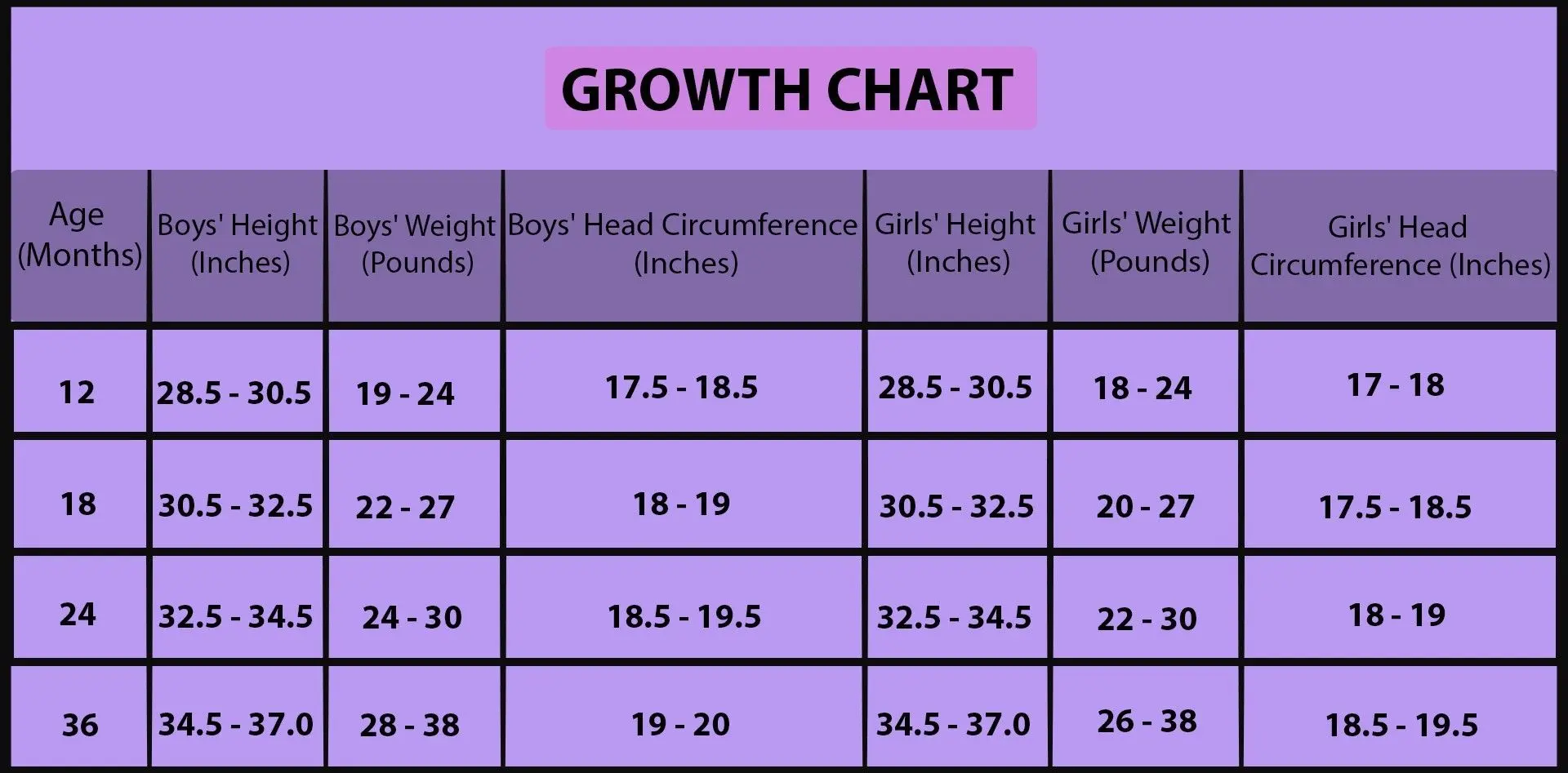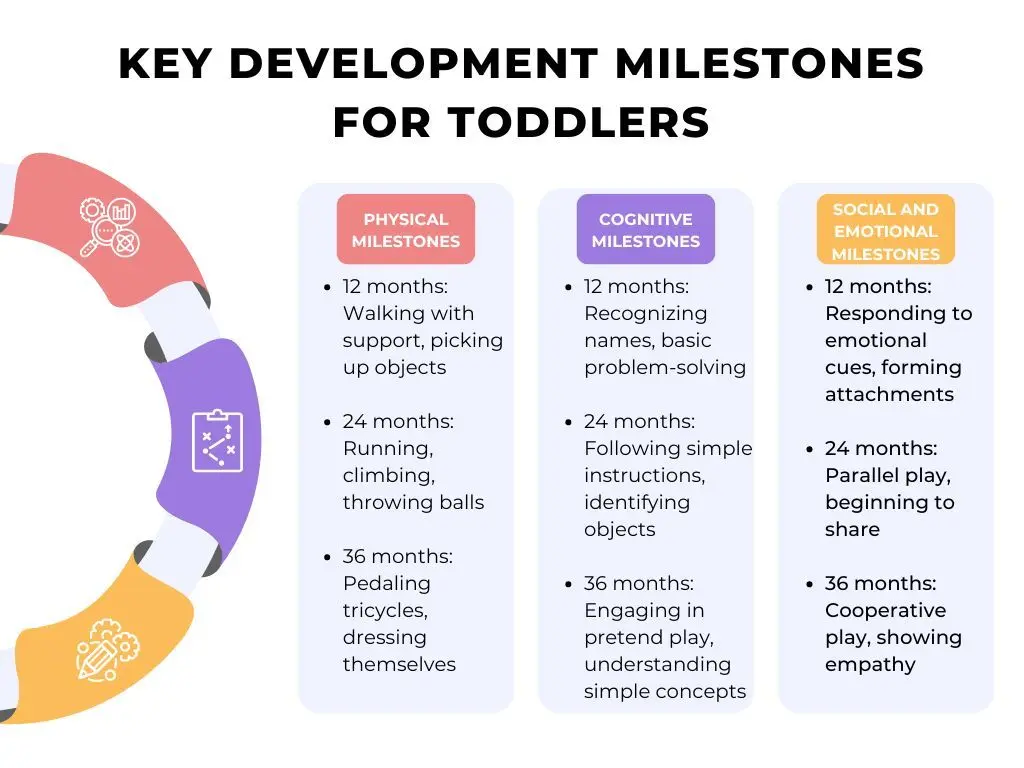Curious about how old is a toddler? Explore our guide to tracking average weight, growth charts, and key milestones today.

How old is a toddler? This question often perplexes parents as they navigate the early years of their child’s life. Generally, toddlers are defined as children between the ages of 1 and 3 years old. Understanding this stage is crucial for parents, as it is a period marked by rapid growth and significant milestones. According to the CDC, toddlers gain about 4 to 6 pounds per year and grow approximately 3 to 5 inches annually.
Knowing “how old is a toddler” helps in tracking their development accurately. This blog will delve into average weight ranges, growth charts, and key developmental milestones, providing you with essential knowledge to support your child’s health and well-being. Stay informed and ensure your toddler’s journey is both healthy and joyful.
How Old is a Toddler?
Defining the Toddler Age Range
The question, “How old is a toddler?”, often arises as parents observe the rapid changes in their young children. Typically, the toddler age range is defined as 1 to 3 years old. This period is significant because it marks a time of remarkable physical, cognitive, and emotional development. During these years, children learn to walk, talk, and begin to assert their independence.
Variations in Toddler Ages
However, the exact definition of a toddler can vary based on cultural and individual differences. For example, some children may start walking as early as 10 months, while others may not take their first steps until after their first birthday. This variability is normal and reflects the unique growth patterns of each child.
To illustrate this, consider the story of Sarah, a mother from Ohio, who noticed her son started talking in full sentences by 18 months, while her friend’s daughter didn’t begin until closer to 2 years old. Pediatricians, like Dr. Jane Smith from the American Academy of Pediatrics, emphasize that these differences are part of the broad spectrum of normal development.
Understanding “how old is a toddler” and recognizing the toddler age range can help parents set realistic expectations and provide the best support for their child’s unique developmental journey.
Tracking Average Weight in Toddlers
Average Weight Benchmarks
When considering how old is a toddler, understanding average weight benchmarks is crucial. On average, toddlers weigh between 22 to 31 pounds by age 2 and 26 to 38 pounds by age 3. These ranges can vary due to factors such as genetics, diet, and physical activity. For example, children with active lifestyles and balanced diets may follow different growth patterns than those who are less active or have dietary restrictions.
Factors Influencing Weight Variations
Several elements can influence a toddler’s weight, including:
- Genetics: Family history plays a significant role in determining a child’s weight.
- Diet: Nutrient-rich foods contribute to healthy weight gain, while poor nutrition can lead to underweight or overweight issues.
- Physical Activity: Regular play and exercise are essential for healthy growth.
Importance of Regular Weight Monitoring
Monitoring your toddler’s weight regularly is vital for detecting any health issues early. Sudden weight gain or loss can signal underlying health concerns such as nutritional deficiencies or metabolic disorders. Pediatricians recommend regular check-ups to ensure your child is growing at a healthy rate.
Tips for Parents
- Use a Reliable Scale: Invest in a good-quality scale to monitor your child’s weight accurately at home.
- Keep a Growth Chart: Track your toddler’s growth using a chart to observe patterns and discuss them with your pediatrician.
- Encourage Healthy Habits: Promote a balanced diet and regular physical activity to support healthy weight gain.
Knowing how old is a toddler helps in understanding these benchmarks and ensures you are well-equipped to support your child’s growth and development effectively.
Tracking Toddler Growth Chart by Months
What Is a Growth Chart?
Growth chart is an essential tool used by pediatricians to track a child’s growth over time. It provides a visual representation of a toddler’s physical development compared to national averages. Understanding how old is a toddler helps parents use these charts effectively. This chart typically includes height, weight, and head circumference measurements, plotted against age. By comparing your child’s measurements to standard growth percentiles, you can assess whether they are growing at a healthy rate.
How to Read Growth Chart?
Reading a growth chart involves locating your child’s age on the horizontal axis and their measurement on the vertical axis. Each point on the chart corresponds to a percentile, showing how your child compares to others of the same age and gender. For instance, being in the 50th percentile means your child is average, while the 90th percentile indicates they are larger than most peers.
Growth Chart

Why should I track the growth chart?
Knowing how old is a toddler and using growth charts helps parents ensure their child is developing healthily. By regularly updating their measurements on the chart, you can observe trends and detect any deviations from expected growth patterns. Identifying red flags, such as sudden drops or plateaus in growth, can indicate potential health issues. In such cases, it’s important to consult your pediatrician promptly.
Tracking Key Development Milestones for Toddlers

As a parent, understanding the key development milestones for toddlers is essential to track your child’s progress and provide appropriate support. Let’s explore these milestones across different domains:
Physical Milestones
- Walking and Running: By around 12 to 15 months, most toddlers start taking their first steps independently, eventually progressing to running and exploring their environment with increased mobility.
- Motor Skills Development: Toddlers refine their fine motor skills, such as picking up small objects with their fingers and using utensils, as well as gross motor skills like climbing stairs and kicking a ball.
Cognitive Milestones
- Language Acquisition: Toddlers rapidly expand their vocabulary, learning new words and beginning to form simple sentences. By age 3, they can understand and follow basic instructions.
- Problem-Solving Skills: Cognitive development enables toddlers to solve simple problems, such as fitting shapes into corresponding holes or completing simple puzzles.
Social and Emotional Milestones
- Interaction with Peers: Toddlers start to engage in parallel play alongside other children, showing interest in socializing and cooperating in simple activities.
- Emotional Regulation: As they learn to express themselves verbally, toddlers also begin to understand and manage their emotions, though tantrums are still common as they navigate frustration and disappointment.
Understanding these milestones and celebrating your child’s achievements can foster a supportive and enriching environment for their growth and development. Remember, every child progresses at their own pace, so continue to provide love, patience, and encouragement along the way
Practical Tips for Supporting Toddler Development
As a parent, creating an environment that nurtures your toddler’s growth and development is paramount. Here are some practical tips to support their journey:
Creating a Nurturing Environment
- Safe, Stimulating Play Areas: Designate areas in your home where your toddler can play freely without hazards. Ensure toys are age-appropriate and encourage imaginative play to stimulate cognitive development.
- Engaging Activities: Introduce activities that promote sensory exploration, such as finger painting, sensory bins, and outdoor play. These experiences enhance their cognitive and motor skills while fostering creativity.
Nutrition and Health
- Balanced Diet Tips: Offer a variety of nutritious foods, including fruits, vegetables, whole grains, lean proteins, and dairy. Involve your toddler in meal preparation to encourage healthy eating habits.
- Importance of Routine Check-ups: Schedule regular visits with your pediatrician to monitor your child’s growth and development. Routine check-ups allow for early detection of any potential health concerns and provide guidance on nutrition and immunizations.
Encouraging Independence
- Age-Appropriate Tasks: Assign simple chores or tasks that encourage independence, such as putting away toys, dressing themselves, or helping with meal preparation. These activities foster self-sufficiency and boost their confidence.
- Positive Reinforcement: Praise your toddler’s efforts and achievements to reinforce their sense of autonomy and competence. Encourage them to problem-solve and try new things, while providing support and guidance when needed.
By implementing these practical tips, you can create a supportive environment that promotes your toddler’s physical, cognitive, and emotional development. Remember to be patient and flexible, adapting your approach to suit your child’s individual needs and interests.
What Not to Expect from Toddler
- Don’t Expect Uniform Growth: Toddlers grow at different rates, so don’t fret if your child’s height, weight, or head circumference doesn’t align precisely with national averages.
- Motor Skills Progression Varies: Some toddlers may master walking and running early, while others take more time.
- Emotional Ups and Downs: Tantrums and mood swings are common as toddlers learn to navigate their emotions. It’s normal for them to experience a range of feelings.
- Cognitive Development Takes Time: While some toddlers may excel in problem-solving, others may need more time to grasp concepts. Be patient and provide opportunities for learning.
- Language Skills Develop Gradually: Don’t expect your toddler to start speaking in full sentences overnight. Language acquisition is a gradual process that varies from child to child.
Understanding that development is a journey with its own unique timeline can alleviate parental anxiety and allow you to celebrate your child’s individual progress.
So, just trust in your child’s abilities and provide a supportive environment for their growth and development.
Conclusion
In conclusion, understanding how old is a toddler is just the beginning of your journey as a parent. Remember, every child is unique, and their development unfolds at its own pace. Embrace the variability in growth aspects such as height, weight, and cognitive skills. Celebrate each milestone, whether it’s taking their first steps or uttering their first words. As you support your toddler’s development, trust in their abilities and provide a nurturing environment.
If you have any questions or would like to share your experiences, we invite you to leave a comment below. Your insights and questions are valuable to us.
You may also be interested in : How Early Childhood Social-Emotional Development Shapes Future Success